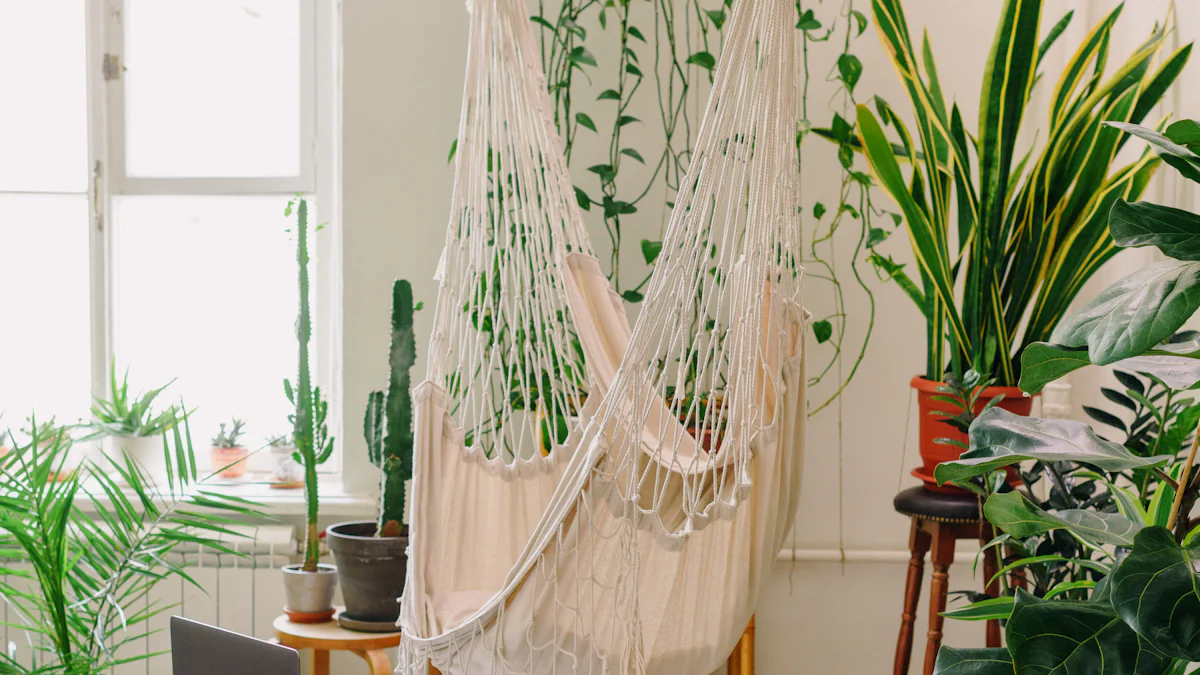2025 Meditation Trends: Creating Your Perfect Zen Space at Home

Embracing the Zen: The Future of Meditation Spaces
In a fast-paced world, the transformative power of meditation is increasingly recognized for its ability to reduce stress and enhance overall well-being. Kim Weller, a Meditation Practitioner and Head of Well-being Operations at Banyan Tree Veya Phuket, emphasizes the importance of having a dedicated meditation space at home to make one's practice more effective and sustainable. This highlights the shift towards integrating mindfulness practices into daily routines for long-term benefits.
Creating a serene and personalized meditation space within your home is not just about aesthetics; it's about nurturing a sanctuary that supports mental health. Interior Designer and Architect Sarah Susanka notes how in Western culture, sacred spaces were traditionally outside the home, but by incorporating a meditation area within your living space, you seamlessly weave mindfulness into your everyday life.
As we look ahead to 2025, trends in meditation practices are expected to focus on making these spaces more accessible and tailored to individual needs. Anticipate innovations that cater to diverse lifestyles, promoting mindfulness as an essential component of holistic well-being.
Understanding the Benefits of Meditation
Meditation is not just a practice; it is a powerful tool that offers a myriad of health benefits, both physically and mentally.
Health Benefits of Meditation
One of the most significant advantages of meditation is its ability to reduce stress and promote mental well-being. By engaging in regular meditation sessions, individuals can experience a sense of calmness and relaxation that transcends into their daily lives. This practice has historical significance, dating back centuries in various cultures, and today, modern medical recommendations often include meditation as part of holistic wellness routines.
Moreover, scientific studies have shown that meditation can lead to structural changes in the brain, enhancing cognitive functions and improving overall mental health. These changes can result in increased focus, better emotional regulation, and reduced symptoms of anxiety and depression. The impact of meditation goes beyond just mental well-being; it extends to physical health as well.
Statistics indicate that meditation can be beneficial for various conditions such as cancer, chronic pain, heart disease, irritable bowel syndrome, anxiety disorders, and depression. This highlights the versatility and effectiveness of meditation as a complementary approach to traditional medical treatments.
Incorporating meditation into your daily routine can have profound effects on your overall health and well-being. Whether you are seeking stress relief or looking to improve your mental clarity, the practice of meditation offers a holistic approach to enhancing both mind and body.
Designing Your Zen Meditation Space
Creating a tranquil and harmonious meditation space at home is essential for fostering a peaceful mind and body connection.
Creating a Tranquil Environment
Incorporating elements like houseplants and zen decor can significantly enhance the ambiance of your meditation space. Houseplants not only add a touch of nature but also purify the air, promoting a sense of tranquility. Personalizing your space with inspirational elements such as meaningful artwork or calming quotes can further create a serene atmosphere conducive to meditation. Additionally, ensuring privacy and security in your meditation area is crucial for uninterrupted practice and deep relaxation.
To support the importance of personal touches, interior stylist Mr. Jason Grant emphasizes that simplicity is key when designing a meditation space. By incorporating simple cushions, a small stool, and textured rugs, you can create a chic yet uncluttered environment that promotes mindfulness.
Space and lifestyle design coach Kelly Anderson echoes this sentiment by highlighting the significance of weaving in pieces that hold personal meaning. Objects like a joyful Buddha statue, warm throw blanket, or colorful rug can infuse your meditation corner with comfort and familiarity, making it truly reflective of your unique identity.
Aesthetic and Functional Design
Beauty plays an integral role in the design of a meditation space. Opting for soft colors like whispery pastels can evoke a soothing atmosphere ideal for introspection. Simplicity is key in maintaining a clutter-free environment that allows for enhanced focus during meditation sessions.
For those looking to establish a dedicated meditation area affordably, taking inspiration from outdoor spaces can be transformative. Designing an outdoor meditation spot with waterproof furnishings and dreamy textiles can offer a serene experience while connecting with nature. Placing your meditation corner next to a window to enjoy natural light and fresh air can further enhance the calming ambiance within your designated space.
By combining aesthetic appeal with functional design elements tailored to individual preferences, you can curate a personalized sanctuary that nurtures mindfulness and inner peace.
Practical Tips for Setting Up Your Meditation Space
Setting up a meditation space that promotes relaxation and mindfulness involves thoughtful consideration of both the environment and personal touches.
Optimizing the Environment
Utilizing natural light and positioning your meditation area near windows can create a soothing atmosphere conducive to inner peace. Natural light not only brightens the space but also helps regulate circadian rhythms, promoting a sense of calmness. Enhancing relaxation by incorporating elements that calm the body's response, such as soft lighting or gentle music, can further deepen your meditation practice. By creating a soothing oasis within your home, you establish a dedicated space where you can retreat to find serenity amidst the hustle and bustle of daily life.
To support the benefits of optimizing the environment for relaxation, statistics from Headspace show that after just 10 days of using their meditation app, individuals reported an 11% decrease in stress levels. After 30 days, this reduction increased to an impressive 32%, highlighting the effectiveness of creating a conducive space for mindfulness.
Personal Touches and Minimalist Approach
Surrounding yourself with comforting objects and colors can enhance the meditative experience. Embracing minimal decor allows for a clutter-free environment that promotes focus during meditation sessions. Incorporating simple cushions, a small stool, and textured rugs can create a chic yet uncluttered meditation space that exudes tranquility.
Interior stylist Sofia emphasizes the importance of selecting whispery pastel hues for a soothing ambiance during meditation. Pastel meditation cushions and accessories can contribute to creating a comforting atmosphere that facilitates relaxation. Taking your meditation practice outdoors, as suggested by Sian, offers an opportunity to connect with nature while immersing yourself in calming surroundings like bird chirps and rustling leaves. Designing an outdoor meditation space with dreamy textiles and candles can elevate your practice to new heights of serenity.
By infusing your meditation space with personal touches and embracing simplicity in design, you can create a sanctuary within your home where you can cultivate mindfulness and inner peace.
Elevating Your Meditation Practice at Home
Enhancing your meditation practice at home goes beyond just finding a quiet corner; it involves intentional design choices that elevate your experience and promote mindfulness in your daily life.
By incorporating thoughtful design elements into your meditation space, such as positioning it near a window to invite natural light and fresh air, you can create an environment that enhances the serenity of your practice. Alexandra from To Vogue or Bust emphasizes the importance of sunlight and a gentle breeze during meditation, showcasing how these simple elements can contribute to a calming atmosphere.
Bringing calm and soothing vibes into your daily routine through mindful design not only transforms your meditation sessions but also infuses tranquility into other aspects of your life. By curating a sanctuary for mindfulness within your home, you establish a dedicated space where you can retreat, recharge, and reconnect with yourself amidst the demands of everyday life.
In conclusion, by paying attention to the details of design and ambiance in your meditation space, you can create an environment that nurtures inner peace and elevates your overall well-being.
See Also
Best Ways to Relax in 2024: Unwind and De-stress Organically
Top 10 Meditative Practices for a Relaxing Getaway
Achieving a Healthy Mind: 10 Steps to Digital Detox

